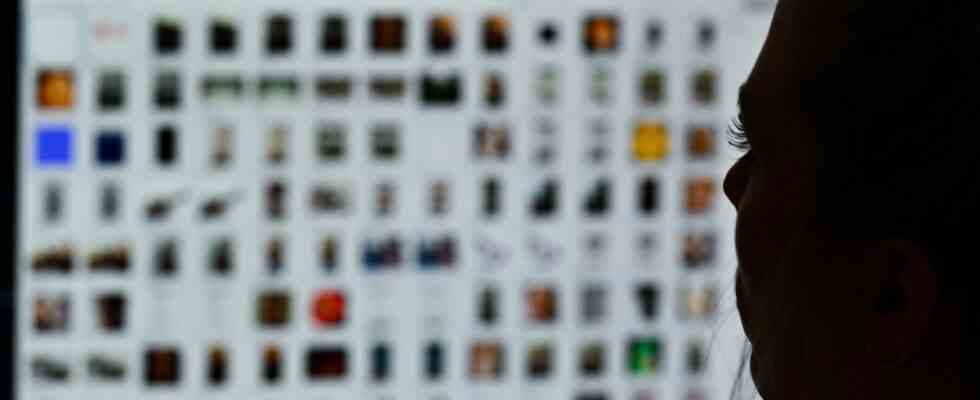Before the press conference in the Munich Palace of Justice begins, there are problems with the light. The stage, on which Bavaria’s justice minister and two public prosecutors are about to stand, is not well lit and the windows are darkened by scaffolding. A camerawoman directs ministry officials through the large hall, light switches are pressed, dimmers are turned up, spotlights on the ceiling blaze up. After a few minutes the light is right, the minister and his guests don’t have to stand in the shade. The unwanted overture summarizes quite well what this Wednesday morning is supposed to be about.
After all, in the fight against child pornography, the state also has to deal with shadow worlds, dark fields and the darkest side of human beings. Minister of Justice Georg Eisenreich (CSU) and his two prosecutors specializing in cybercrime want to illuminate these abysmal corners in a particularly glaring manner.
Two years ago, the Center for Combating Child Pornography and Sexual Abuse of Children on the Internet (ZKI) was founded in Bamberg for this purpose. A small team of eight investigators and four IT forensic scientists have no other task than to hunt down perpetrators and networks that produce, possess and distribute child pornographic data – and that with a significantly increasing number of cases. “This year alone, a total of 4,037 new procedures were initiated at the ZKI by October 15,” says Minister of Justice Eisenreich. In the whole of last year there were still 3200.
Not every case stays with the team based at the public prosecutor’s office in Bamberg. Many are handed over to the 22 public prosecutor’s offices in Bavaria. Only the “legally and technically particularly difficult cases” are kept, according to ZKI director Thomas Goger. He’s sort of the chief illuminator. His people research, for example, in the dark web, another dark corner. This hidden parallel Internet, which can only be accessed with technical tricks, has developed into the main hub for child pornography content in recent years. “A quarter of all Darknet sites are related to child pornography,” says Goger. What his team sees there is “extremely distressing”.
It combs through the sites using modern methods – for example, a search engine developed by Dutch researchers that can unmask criminal domains and show connections between users. This is how international networks are to be tracked down. In addition, the prosecutors of the ZKI sneak into the secret forums of the child molesters to gather information.
The investigators are now allowed to post so-called chastity tests on the forums in order to gain the perpetrators’ trust – pictures showing child abuse. The procedure was prohibited until 2020, since then investigators have been allowed to use computer-generated files. They don’t show real victims, even if it looks like it. “Anyone who commits such heinous crimes can never feel safe in Bavaria,” says Justice Minister Eisenreich about the investigative methods.
Pedo criminals are increasingly hijacking private individuals’ Facebook accounts
However, the ZKI is currently observing a new phenomenon with growing concern: strangers are increasingly hijacking the Facebook or Instagram accounts of unsuspecting users and using them to spread child pornography content. A delicate process, after all, since criminal law was tightened last year, possession of the relevant data is no longer just a misdemeanor, but a crime. Prosecutors must pursue it imperatively. “That’s why those affected should under no circumstances forward the material,” appealed Eisenreich. “It’s punishable.” Instead, hacking victims should report directly to the police. There have already been more than 500 cases of Facebook hacking in Bavaria this year. Goger’s ZKI collects the cases. Who is behind the phenomenon and for what reason is so far “completely unclear,” says the prosecutor.
Despite all efforts by the authorities to increase the pressure on pedo-criminals, experts estimate that the number of undetected crimes is high. “We are at the beginning of our efforts to illuminate the dark field,” says Wolfgang Gründler, Attorney General in Bamberg, who deals particularly intensively with cybercrime. At the press conference on Wednesday, Gründler, like his colleague Goger and Minister Eisenreich, called for the approval of data retention in order to be able to better investigate serious crimes – a topic that has been controversial for years.
“Many investigations are over before they even begin,” argues Gründler. Often the only trace is an IP address of a suspect. Because the storage of the information associated with the IP address is currently suspended in Germany, the authorities would lose important starting points. For this reason, 28 of the 504 procedures in the ZKI have been discontinued since February, says Thomas Goger.
The European Court of Justice recently set strict limits on data retention in a judgment: According to this, information may not be collected by Internet providers without cause. However, the court allowed leeway in combating serious crime such as child abuse. The federal government is currently working on a draft law. It would be “negligent,” says Bavaria’s Justice Minister Eisenreich, if all legal options were not exhausted.

